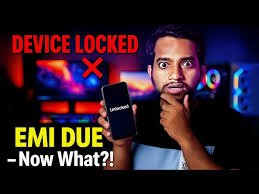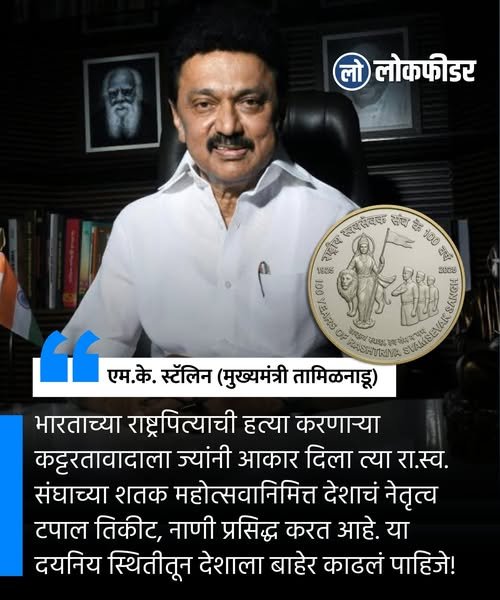
Smartphones will be blocked if EMI is not paid: RBI's new decision
RBI new EMI rules, phone EMI :-The Reserve Bank of India (RBI) has recently taken an important and revolutionary decision, which can bring about a big change in the banking and technology sector. According to this new policy, if you miss your loan installment (EMI), your smartphone can be blocked. This decision has been taken to control the problem of arrears and loan repayment in the banking sector. In this article, we will get detailed information about the details of this decision, its consequences and the impact it will have on the common citizen.
What is the new rule of RBI?
RBI has issued a new guideline for banks, which will allow banks to block smartphones of customers who have loan arrears. This decision will be especially applicable to customers who use digital payments and banking facilities through smartphones. The aim is to put the responsibility of loan repayment on the customers and control the problem of arrears.
Under this new system, if a customer fails to pay EMI for three consecutive months, the bank can impose some technical restrictions on their smartphone. This may include disabling some important features of the smartphone, such as internet banking, UPI payments or even phone calls and messaging facilities. This decision has been taken keeping in mind the increasing use of smartphones, as most financial transactions are done through smartphones these days.
Reasons behind this decision
According to the RBI, loan defaults have become a major problem in the country. In particular, the defaults of personal loans, credit cards and smartphone loans have increased in the last few years. Banks have to resort to traditional methods to recover dues, which include legal action, recovery agents and other costly procedures. This new decision will provide banks with a new and effective tool to recover dues.
Apart from this, smartphones have become an integral part of every person's life today. Smartphones are used for banking, shopping, bill payments and many other things. Therefore, the RBI believes that imposing restrictions on smartphones can be an effective way to recover dues.
How will this impact consumers?
This decision raises many questions for ordinary consumers. If a person misses an EMI, their smartphone is likely to be blocked. This can have a major impact on their daily lives. For example, if a personΓÇÖs smartphone is blocked, it will be difficult for them to make digital payments, shop online, or even use social media. Apart from this, blocking a smartphone can also affect their personal and professional lives.
However, the RBI has clarified that adequate notice and opportunity will be given to consumers before implementing this decision. Banks will have to give customers at least 60 days to pay the outstanding amount. In addition, restrictions will be imposed in phases before blocking smartphones completely, so that consumers get time to pay their dues.
How will technology be used?
Banks will have to collaborate with smartphone manufacturers and telecom companies to implement this decision. Special software or applications can be used to block smartphones. For example, a bank can send a special code or signal, which will disable certain features of a smartphone. This may involve technical changes related to the smartphone's operating system.
According to some experts, this decision may also give rise to privacy issues. To impose restrictions on smartphones, banks will have to access customer data, which may raise data privacy and security issues. For this, the RBI needs to issue clear guidelines, so that the privacy of customers is protected.
Expert opinion
Many economists and banking experts have welcomed the decision, but at the same time, some concerns have also been expressed. Some experts say that this decision can be effective in recovering dues, but it may put additional pressure on ordinary consumers. This decision may be particularly troublesome for individuals with low incomes or facing financial difficulties.
In addition, some experts have raised questions about the technical feasibility of blocking smartphones. The implementation of this decision may be difficult due to the different brands and operating systems of smartphones. For this, banks and smartphone companies will have to develop a uniform and secure system.
Questions from common citizens
Since the announcement of this decision, many questions have arisen among common citizens. Some of the major questions are as follows:
If a smartphone is blocked, how will it be reactivated?
What measures will be taken if the reason for EMI default is financial difficulties?
What kind of software will be used to block smartphones?
Will this decision be applicable only to new loans or to old loans as well?
RBI has planned to launch a special helpline and website to answer these questions, so that customers can get their doubts resolved.
RBI new EMI rules, phone EMI :-The Reserve Bank of India (RBI) has recently taken an important and revolutionary decision, which can bring about a big change in the banking and technology sector. According to this new policy, if you miss your loan installment (EMI), your smartphone can be blocked. This decision has been taken to control the problem of arrears and loan repayment in the banking sector. In this article, we will get detailed information about the details of this decision, its consequences and the impact it will have on the common citizen.
What is the new rule of RBI?
RBI has issued a new guideline for banks, which will allow banks to block smartphones of customers who have loan arrears. This decision will be especially applicable to customers who use digital payments and banking facilities through smartphones. The aim is to put the responsibility of loan repayment on the customers and control the problem of arrears.
Under this new system, if a customer fails to pay EMI for three consecutive months, the bank can impose some technical restrictions on their smartphone. This may include disabling some important features of the smartphone, such as internet banking, UPI payments or even phone calls and messaging facilities. This decision has been taken keeping in mind the increasing use of smartphones, as most financial transactions are done through smartphones these days.
Reasons behind this decision
According to the RBI, loan defaults have become a major problem in the country. In particular, the defaults of personal loans, credit cards and smartphone loans have increased in the last few years. Banks have to resort to traditional methods to recover dues, which include legal action, recovery agents and other costly procedures. This new decision will provide banks with a new and effective tool to recover dues.
Apart from this, smartphones have become an integral part of every person's life today. Smartphones are used for banking, shopping, bill payments and many other things. Therefore, the RBI believes that imposing restrictions on smartphones can be an effective way to recover dues.
How will this impact consumers?
This decision raises many questions for ordinary consumers. If a person misses an EMI, their smartphone is likely to be blocked. This can have a major impact on their daily lives. For example, if a personΓÇÖs smartphone is blocked, it will be difficult for them to make digital payments, shop online, or even use social media. Apart from this, blocking a smartphone can also affect their personal and professional lives.
However, the RBI has clarified that adequate notice and opportunity will be given to consumers before implementing this decision. Banks will have to give customers at least 60 days to pay the outstanding amount. In addition, restrictions will be imposed in phases before blocking smartphones completely, so that consumers get time to pay their dues.
How will technology be used?
Banks will have to collaborate with smartphone manufacturers and telecom companies to implement this decision. Special software or applications can be used to block smartphones. For example, a bank can send a special code or signal, which will disable certain features of a smartphone. This may involve technical changes related to the smartphone's operating system.
According to some experts, this decision may also give rise to privacy issues. To impose restrictions on smartphones, banks will have to access customer data, which may raise data privacy and security issues. For this, the RBI needs to issue clear guidelines, so that the privacy of customers is protected.
Expert opinion
Many economists and banking experts have welcomed the decision, but at the same time, some concerns have also been expressed. Some experts say that this decision can be effective in recovering dues, but it may put additional pressure on ordinary consumers. This decision may be particularly troublesome for individuals with low incomes or facing financial difficulties.
In addition, some experts have raised questions about the technical feasibility of blocking smartphones. The implementation of this decision may be difficult due to the different brands and operating systems of smartphones. For this, banks and smartphone companies will have to develop a uniform and secure system.
Questions from common citizens
Since the announcement of this decision, many questions have arisen among common citizens. Some of the major questions are as follows:
If a smartphone is blocked, how will it be reactivated?
What measures will be taken if the reason for EMI default is financial difficulties?
What kind of software will be used to block smartphones?
Will this decision be applicable only to new loans or to old loans as well?
RBI has planned to launch a special helpline and website to answer these questions, so that customers can get their doubts resolved.
What is the new rule of RBI?
RBI has issued a new guideline for banks, which will allow banks to block smartphones of customers who have loan arrears. This decision will be especially applicable to customers who use digital payments and banking facilities through smartphones. The aim is to put the responsibility of loan repayment on the customers and control the problem of arrears.
Under this new system, if a customer fails to pay EMI for three consecutive months, the bank can impose some technical restrictions on their smartphone. This may include disabling some important features of the smartphone, such as internet banking, UPI payments or even phone calls and messaging facilities. This decision has been taken keeping in mind the increasing use of smartphones, as most financial transactions are done through smartphones these days.
Reasons behind this decision
According to the RBI, loan defaults have become a major problem in the country. In particular, the defaults of personal loans, credit cards and smartphone loans have increased in the last few years. Banks have to resort to traditional methods to recover dues, which include legal action, recovery agents and other costly procedures. This new decision will provide banks with a new and effective tool to recover dues.
Apart from this, smartphones have become an integral part of every person's life today. Smartphones are used for banking, shopping, bill payments and many other things. Therefore, the RBI believes that imposing restrictions on smartphones can be an effective way to recover dues.
How will this impact consumers?
This decision raises many questions for ordinary consumers. If a person misses an EMI, their smartphone is likely to be blocked. This can have a major impact on their daily lives. For example, if a personΓÇÖs smartphone is blocked, it will be difficult for them to make digital payments, shop online, or even use social media. Apart from this, blocking a smartphone can also affect their personal and professional lives.
However, the RBI has clarified that adequate notice and opportunity will be given to consumers before implementing this decision. Banks will have to give customers at least 60 days to pay the outstanding amount. In addition, restrictions will be imposed in phases before blocking smartphones completely, so that consumers get time to pay their dues.
How will technology be used?
Banks will have to collaborate with smartphone manufacturers and telecom companies to implement this decision. Special software or applications can be used to block smartphones. For example, a bank can send a special code or signal, which will disable certain features of a smartphone. This may involve technical changes related to the smartphone's operating system.
According to some experts, this decision may also give rise to privacy issues. To impose restrictions on smartphones, banks will have to access customer data, which may raise data privacy and security issues. For this, the RBI needs to issue clear guidelines, so that the privacy of customers is protected.
Expert opinion
Many economists and banking experts have welcomed the decision, but at the same time, some concerns have also been expressed. Some experts say that this decision can be effective in recovering dues, but it may put additional pressure on ordinary consumers. This decision may be particularly troublesome for individuals with low incomes or facing financial difficulties.
In addition, some experts have raised questions about the technical feasibility of blocking smartphones. The implementation of this decision may be difficult due to the different brands and operating systems of smartphones. For this, banks and smartphone companies will have to develop a uniform and secure system.
Questions from common citizens
Since the announcement of this decision, many questions have arisen among common citizens. Some of the major questions are as follows:
If a smartphone is blocked, how will it be reactivated?
What measures will be taken if the reason for EMI default is financial difficulties?
What kind of software will be used to block smartphones?
Will this decision be applicable only to new loans or to old loans as well?
RBI has planned to launch a special helpline and website to answer these questions, so that customers can get their doubts resolved.

.jpg)











.jpg)



.png)
